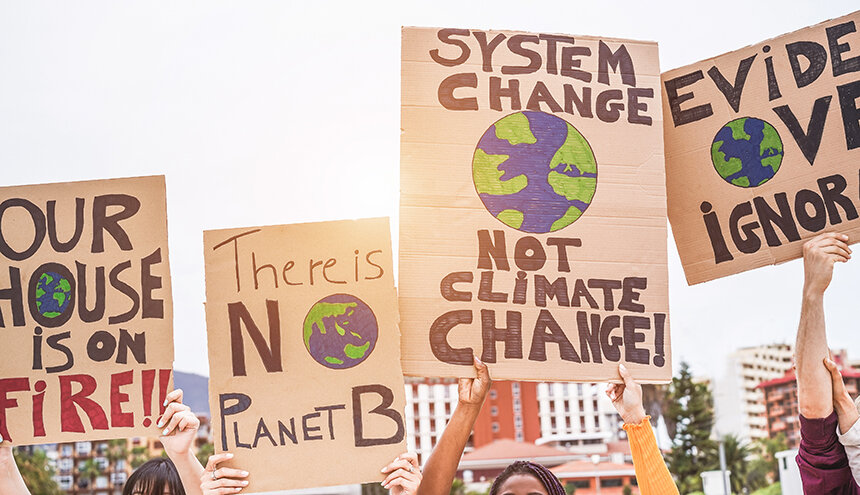New Report Outlines Equitable Climate Action Plan for Rhode Island
February 3, 2022
Climate Jobs Rhode Island and Cornell University recently released a report outlining a climate jobs action plan to put Rhode Island on the path to meeting the state’s climate targets and building an equitable renewable energy economy.
The 98-page report outlines policy recommendations to build a renewable, equitable, and worker-centered economy in the Ocean State.
Climate Jobs Rhode Island, a coalition formed last year to establish a just transition to a green economy, mailed the report to state and local decision-makers as a “roadmap to guide pro-worker, pro-climate investment of federal relief and infrastructure money available to the state.”
The report outlines a series of wide-ranging policy recommendations to transition the Ocean State’s building, school, energy, and transportation sectors to renewable energy with strong labor and equity standards. Core provisions of the plan include installing 900 megawatts of solar energy and 1,300 megawatts of offshore wind energy and modernizing the state’s electrical grid by 2030.
Priscilla De La Cruz, senior director of government affairs at the Audubon Society of Rhode Island and co-chair of Climate Jobs Rhode Island, noted the coalition was launched “because workers and unions in our state know that we’re running out of time when it comes to the climate crisis.”
“That’s why our coalition is uniting behind this comprehensive plan to build a renewable energy economy for Rhode Island,” she said. “From relieving schools’ dependency on fossil fuels to making transformative investments in utility-scale solar and wind, this science-backed report lays out how Rhode Island can take bold climate action … starting with front-line and environmental justice communities who are overburdened by pollution and have suffered from decades of dis-investments.”
The coalition, which includes labor unions, environmental groups and community organizations, launched in January 2021 to tackle the climate crisis by creating union climate jobs and advancing racial and economic equity. The coalition has also launched a Green and Healthy Schools campaign aimed at de-carbonizing all K-12 public schools by 2030.
Avalon Hoek Spaans, research and policy development extension associate for the Labor Leading on Climate Initiative at Cornell University and one of the authors of the report, said Rhode Island, which in 2019 had the lowest energy consumption per capita across the United States, “can use climate change as an opportunity to eliminate carbon emissions, increase equity, and create high-quality jobs that support working families and front-line communities.”
“As a small state with one of the lowest emissions in the country, Rhode Island can be innovative and efficient, employing cutting-edge approaches to reverse climate change and inequality,” said Lara Skinner, director of the Cornell initiative and one of the authors of the report. “Rhode Island has the potential to be the first state in the country to fully de-carbonize and build out a net-zero economy with high-quality union jobs. This would make Rhode Island’s economy stronger, fairer and more inclusive.”
Climate Jobs Rhode Island is planning to hold a public panel in March featuring coalition leaders and experts from Cornell University in discussion around the report’s findings and recommendations.
“We can’t build our way out of the climate crisis with poverty-level jobs. That’s why the Rhode Island labor movement is leading the way to an equitable renewable energy economy, powered by workers in good union jobs,” said Patrick Crowley, secretary-treasurer of the Rhode Island AFL-CIO and co-chair of Climate Jobs Rhode Island. “This Cornell report shows how we can make it happen, outlining concrete recommendations to make sure working families are at the core of all climate policy, from requiring labor representation on government agencies that work on climate change mitigation and adaptation to establishing a Wage Board to set a minimum wage for the renewable energy industry.”



